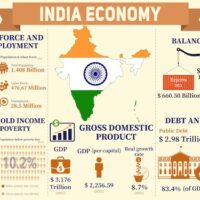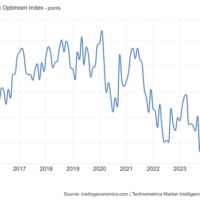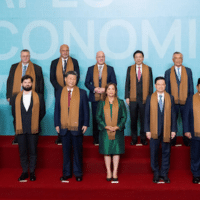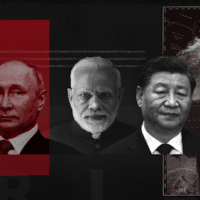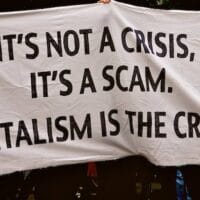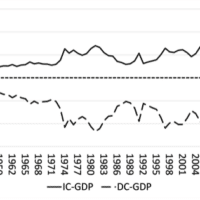-
Japan: stagnation and confusion
Prime Minister Shigeru Ishiba, who heads the LDP, has intensified his rhetoric on issues appealing to conservatives, the core LDP base.
-
How to New York Times-Proof Mamdani’s Playbook: Turning Coalition Specifics into Fiscal Possibilities
In a recent video recapping his primary victory in Queens, Zohran Mamdani did something almost radical for today’s political landscape: he cut through the usual Beltway euphemisms and mapped out the varied, living elements of the coalition that won. Most postmortems stay tangled in polite code. We get anxious talk of “electability,” “swing voters,” whether […]
-
Trump’s tariff aggression
It is important for an intellectual position not only to be right but to be right for the right reasons; and the near-universal condemnation of Donald Trump’s aggressive imposition of tariffs, though right, is right for the wrong reasons.
-
The State of Capitalism in Flux: Economy, Society, and Hegemony under Today’s Interregnum
“Everything gives way and nothing stands fast.” —Heraclitus, as quoted in Plato’s Cratylus1 During the “Age of Catastrophe” (1919–45), a series of profound economic, political, and ideological crises disrupted what had appeared to be the “normal” functioning of capitalism.2 In 1930, a key moment of this “age,” marked by the economic catastrophe of the Great […]
-
Two alternative growth paradigms
Nobody can claim that the rate of growth of agricultural production, especially of food grain production, has been higher in the neoliberal period than during the years of dirigiste development that preceded it; it may have been somewhat lower but let us agree that it is certainly no higher.
-
From export-led to consumption-led growth?
A CHORUS of “establishment” voices, from consultancy firms to the financial press, has been demanding a boost to domestic consumption as a means of reviving the flagging growth rate of the Indian economy. The latest to join this chorus is the Reserve Bank of India which in its latest Bulletin has asked for a boost to consumption to “rekindle the animal spirits” of the “entrepreneurs” in the economy.
-
The curious case of strengthening dollar, falling rupee
The primary cause of the rupee’s depreciation is the preference of the Indian rich to hold their wealth in the form of U.S. dollars rather than in Indian rupees.
-
Amiya Kumar Bagchi, 1936-2024
Several obituaries of Amiya Kumar Bagchi have appeared since his death on November 28, covering his remarkable achievements.
-
U.S. economy: An exceptional boom or a bubble to burst?
Recently, there has been a spate of articles and commentary about ‘U.S. exceptionalism’, namely that the U.S. economy is bounding forward in terms of economic growth, hi-tech investment and productivity, leaving the rest of the world behind.
-
A tale of two summits: U.S. influence on the decline as China and BRICS on the rise
The United States is continuing its economic battle against China in South America. However, its influence in the region is in decline as nations seek alternatives in order to forestall U.S. hegemony.
-
Amiya K Bagchi: ‘A political economist, economic historian who stands tall in South Asia’
Rich tributes flow in for the ‘towering’ Marxist ideologue who passed away in Kolkata on November 28 at the age of 88.
-
The Kazan summit of BRICS
The BRICS declaration presumes that the international institutions in their current state are flawed because they are dominated by imperialist countries and are not representative enough; but they are flawed because their very essence is flawed, no matter how they are governed.
-
The dialectics of wealth and poverty
THIS year’s Nobel Prize in economics (the Riksbank Prize to be more precise) has been awarded to three U.S.-based economists for their research into what promotes or hinders the growth of wealth among nations; and they assign a crucial role to institutions, arguing that western institutions like electoral democracy are conducive to growth.
-
Another Nobel for Anglocentric Neoliberal Institutional Economics
New institutional economics has received another so-called Nobel prize, ostensibly for again claiming that good institutions and democratic governance ensure growth, development, equity & democracy.
-
Cuba requests entry into the BRICS
On Monday, the Director of General Affairs of the Cuban Foreign Ministry, Carlos Pereira, announced that his country had requested to join BRICS+.
-
IIPPE 2024: Imperialism, China and BRICS+
The countries of the BRICS+ were just as capitalist and imperialist as the imperialist bloc of the Global North, argued Ngawani.
-
Further thoughts on the economics of imperialism
Since the end of WW2, the imperialist bloc (IC) annually got around 1% of their GDP through the transfer of surplus value in international trade from the rest of the major ‘developing’ economies (DC) in the G20; while the latter lost about 1% of their GDP in surplus value transferred to the imperialist bloc. And these ratios were rising.
-
How private equity conquered America
Blackstone, Apollo, and a handful of other firms are demolishing the US economy for short-term gain, and leaving workers and communities in the wreckage.
-
Latest CPI Report : The ‘soft landing’ plane is still circling
For months the mainstream media and Washington Pols have been pushing the metaphor that the U.S. economy is a plane on its final approach to a ‘soft landing’. Soft landing is defined as inflation steadily coming down to the Federal Reserve’s goal of a 2% price level AND does so without provoking a recession.
-
Americans deserve fairer social security taxes
Social Security has been a financial rock for seniors ever since benefits first began flowing in 1940.





